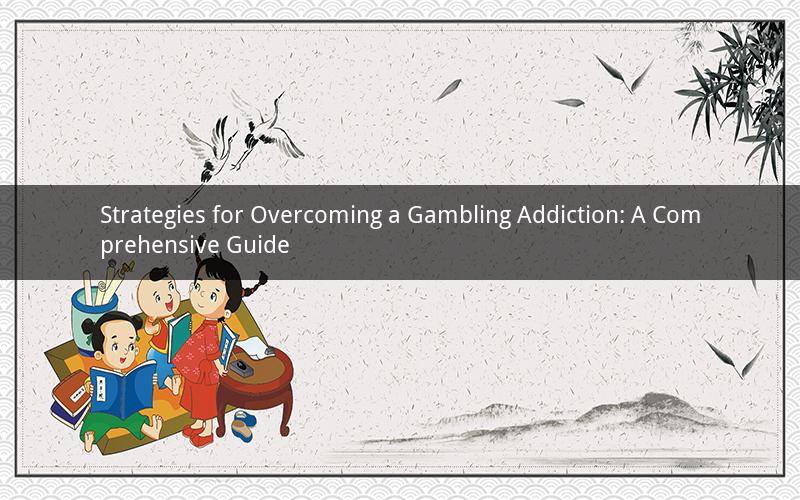
Gambling addiction is a serious issue that affects millions of people worldwide. It can lead to financial, emotional, and social problems, and can even result in legal troubles. If you or someone you know is struggling with a gambling addiction, it is crucial to seek help and learn how to manage this challenging problem. This guide will provide you with valuable information on how to handle a gambling addiction, including identifying the signs, seeking professional help, and developing healthy coping mechanisms.
1. Recognizing the Signs of a Gambling Addiction
It is essential to be aware of the signs of a gambling addiction so that you can take action early on. Some common signs include:
- Feeling the need to gamble more and more to achieve the same level of excitement or satisfaction
- Lying to family, friends, or professionals about the extent of your gambling activities
- Neglecting personal responsibilities, such as work, school, or family, due to gambling
- Continuously chasing losses, hoping to recoup your money
- Feeling restless or irritable when you are not gambling
- Using gambling as a way to cope with stress, anxiety, or depression
2. Seeking Professional Help
If you suspect that you have a gambling addiction, it is important to seek professional help. A therapist or counselor can provide you with the support and tools you need to overcome your addiction. Here are some options for seeking professional help:
- Therapists specializing in addiction treatment
- Mental health professionals, such as psychologists or psychiatrists
- Support groups for individuals with gambling addiction, such as Gamblers Anonymous
3. Developing a Treatment Plan
A treatment plan tailored to your specific needs is crucial for overcoming a gambling addiction. This plan may include:
- Cognitive-behavioral therapy (CBT): This type of therapy helps you recognize and change negative thought patterns and behaviors related to gambling.
- Medication: In some cases, medication may be prescribed to help manage symptoms of depression or anxiety that may be contributing to your gambling addiction.
- Relapse prevention: Learning how to identify and cope with triggers that may lead to relapse is an important part of your treatment plan.
- Support from family and friends: Building a strong support network can provide you with the encouragement and guidance you need during your recovery journey.
4. Setting Realistic Goals and Expectations
Overcoming a gambling addiction is a long-term process, and it is important to set realistic goals and expectations for your recovery journey. Some tips for setting goals include:
- Start with small, achievable goals to build confidence and momentum.
- Focus on your progress, rather than setbacks.
- Celebrate your successes, no matter how small they may seem.
- Be patient and understanding with yourself, as recovery is a process that takes time.
5. Creating a Healthy Lifestyle
A healthy lifestyle can help you manage the stress and triggers that may contribute to your gambling addiction. Some strategies for creating a healthy lifestyle include:
- Regular exercise: Physical activity can help reduce stress and improve your overall well-being.
- Adequate sleep: Ensuring you get enough rest can help you better manage stress and maintain a healthy mood.
- A balanced diet: Eating a nutritious diet can improve your energy levels and mood.
- Social support: Surrounding yourself with positive, supportive people can help you stay motivated and focused on your recovery goals.
5 Related Questions and Answers
Question 1: Can a gambling addiction be cured completely?
Answer: While there is no guaranteed cure for a gambling addiction, many individuals successfully overcome their addiction with the right treatment, support, and commitment to recovery.
Question 2: How long does it take to overcome a gambling addiction?
Answer: The duration of recovery can vary from person to person, but it typically takes several months to years to overcome a gambling addiction.
Question 3: Can medication help treat a gambling addiction?
Answer: Medication can be prescribed to help manage symptoms of depression or anxiety that may be contributing to your gambling addiction. However, it is not a cure for the addiction itself.
Question 4: Are support groups effective for treating gambling addiction?
Answer: Support groups, such as Gamblers Anonymous, can be a valuable resource for individuals struggling with a gambling addiction. They provide a sense of community, support, and encouragement during the recovery process.
Question 5: Can family and friends help someone overcome a gambling addiction?
Answer: Yes, family and friends can play a crucial role in supporting someone with a gambling addiction. They can provide emotional support, encourage the individual to seek help, and help create a supportive environment for recovery.